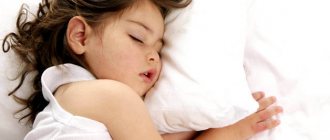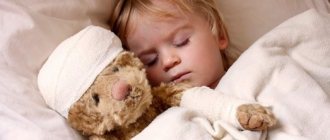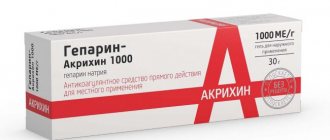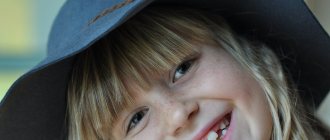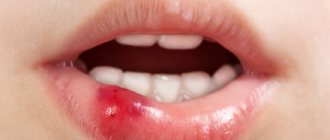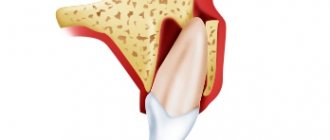Bruxism in children is involuntary grinding of teeth during night sleep, caused by spasm of the chewing muscles. This is a chronic disorder, muscle contraction occurs in attacks. The episode usually lasts no more than 10 seconds and can occur several times during the night. Some researchers believe that it is not necessary to treat bruxism, since it will go away on its own by the age of 6–7 years. However, it is important to show the child to the dentist, since this disorder can lead to certain unpleasant consequences for the dental system. In addition, you should take into account the baby’s general health: if there are other neurological symptoms, somatic and systemic diseases, you need to be regularly monitored by specialists.
Forms of the disease
Pediatric bruxism may vary in duration and frequency of episodes. However, it is important to understand that these are exclusively nighttime attacks of teeth grinding.
Bruxism should not be confused with bruxomania - clenching and grinding of teeth during the daytime, while awake. Such movements are usually voluntary and controllable, and in young children they may be associated with a newfound interest in the capabilities of their body when new teeth are just emerging. Experts say that some babies try to cope with the itching when teething. In this case, it is worth showing the child to a doctor, but usually the disorder is temporary and does not require correction.
Ask a Question
Minor defect?
Grinding of teeth in a child may seem like a minor deviation from the norm only at first glance. It’s good when this phenomenon is temporary and at the age of 5–6 years, bruxism in a child goes away on its own. But if your first-grader continues to grind his teeth at night, don't hesitate to seek medical help. Otherwise, even the permanent teeth that will replace the milk teeth will be at risk.
Causes of childhood bruxism
Dysfunction of the masticatory muscles can be an independent disease or a complication of diseases of the oral cavity, as well as other organs and systems of the child’s body. Often, children's bruxism is accompanied by sleep disorders: apnea, snoring, somnambulism, nightmares, interrupted sleep, etc. The causes of muscle spasms can be psychological factors: stress, fear, increased anxiety, depression, etc. In some cases, the child is not aware of traumatic situations and does not shows concern, but he has internal tension. This may be due to a change of place of residence, a conflict in a school group, the birth of a brother or sister, the loss of a favorite toy or pet, etc. Even an excess of positive emotions can cause sleep disturbances.
Nervous system dysfunction can also lead to bruxism. The disease in some cases is accompanied by epileptic seizures, hand tremors, and disturbances in muscle tone (not only in relation to the masticatory muscles).
There is an assumption that night grinding of teeth is associated with helminthiasis. But it has not been scientifically confirmed and explains the problem only indirectly: parasitosis is often accompanied by anemia and a lack of B vitamins, which causes changes in the function of the nervous system and muscle tone, respectively.
Some role in the development of bruxism is given to ENT pathologies: adenoiditis, deviated nasal septum, chronic inflammatory diseases make nasal breathing difficult. Many researchers believe that this leads to impaired muscle tone in the facial and chewing muscles.
Dental causes of bruxism in children include the following:
- malocclusion;
- overestimation of the filling: it does not allow the jaws to close normally, which leads to improper load on the muscles;
- periodontal tissue diseases;
- diseases of the temporomandibular joint (TMJ).
Signs of bruxism in children
Parents are usually able to suspect bruxism because the child’s sleep is not interrupted during episodes of nighttime grinding and he does not experience significant discomfort. After waking up, the baby may complain of pain in the facial muscles, temporomandibular joint, headaches and dizziness, and ringing in the ears. During the day you may experience lethargy, drowsiness, and increased fatigue. As the disease develops, there may be increased abrasion of the enamel and associated hyperesthesia - sensitivity to food at different temperatures, as well as sour and sweet foods and drinks.
Complications of bruxism
Long-term bruxism can cause the following complications:
- damage to the enamel: cracks, destruction of the crown of the teeth, chips and others, which are associated with inadequate loads on hard tissues;
- tooth mobility, premature loss of baby teeth;
- damage to gums and periodontal tissues;
- violation of permanent occlusion associated with early tooth loss, reduction in crown height and other phenomena.
Prolonged attacks of bruxism are accompanied by apnea - a short-term cessation of breathing. This can lead to oxygen starvation and associated unpleasant consequences for the child’s entire body.
Diagnostic features
The doctor determines the fact of night grinding from the words of the child’s parents or close relatives, but it is important to confirm the diagnosis. The following methods are used for diagnosis:
- polysomnography. The procedure involves fixing special sensors on the child’s body that record changes during sleep. Allows you to assess the functional state of the nervous system;
- EEG. Makes it possible to evaluate the electrical activity of the brain, identify epilepsy and other disorders;
- electromyography. This method of assessing the function of the masticatory muscles is based on the impact of electric current. The procedure is painless and allows you to determine excess muscle tone;
- Brooks Checker. Special aligners made from a cast of the patient's jaw are installed overnight, after which the diagnostic plates are sent to the clinic for analysis. This method allows you to determine which teeth suffer from increased occlusal load and whether it occurs in general.
It is important to understand that these measures may not be enough to identify the true causes of the problem. In some cases, laboratory diagnostics are required: general blood tests, determination of hemoglobin levels, mineral content and other components. It may also be necessary to involve other specialized specialists: otolaryngologist, neurologist, psychotherapist, gastroenterologist.
GRINDING OF TEETH IN YOUR SLEEP – ARE WORMS TO BE TO blame?
Grinding your teeth in your sleep has an official medical term – bruxism. Doctors do not consider this phenomenon a disease; it would be more accurate to call it a condition that can arise for various reasons. For a long time, even educated people seriously believed in the myth that bruxism is caused by helminthic infestation.
Mothers passed on to each other by word of mouth advice to give their child an anthelmintic drug. However, in reality, teeth grinding at night has nothing to do with worm infection. The authoritative pediatrician Dr. Komarovsky has repeatedly tried to debunk this misconception. Worms can be present in the body of any child, regardless of whether he grinds his teeth or not.
In the case of helminthic infestation, the symptoms will be completely different:
- stomach ache;
- headache;
- unstable appetite;
- attacks of nausea and vomiting;
- bowel dysfunction (constipation alternating with diarrhea);
- itching in the anus.
The baby's skin may become pale and dark circles appear under the eyes. The child experiences weakness and shows irritability. A blood test can indirectly confirm helminthic infestation. Worm eggs are detected during clinical examination of stool.
As for bruxism, it is caused by various pathological conditions not related to parasitic infection. You can get rid of this symptom in a child only by eliminating the original cause, but this must be done. In some cases, children grind their teeth so much that they wear them down and this becomes a serious problem. Sometimes parents hear a terrible grinding sound even from the next room.
Teeth grinding is caused by repetitive movements of the lower jaw and chewing muscles. Bruxism is divided into nighttime (uncontrolled), daytime (partially controlled) and combined. The pathology occurs in approximately one third of all preschool children. Currently, bruxism has not been sufficiently studied, but work in this direction is constantly being carried out.
Treatment methods
Treatment of bruxism in children begins with eliminating the causes that caused this disorder. Medication, physiotherapy, psychotherapy are used, and dental defects are corrected.
There is no specific drug therapy for bruxism, since it is not a disease, but rather a symptom of certain disorders. However, the doctor can prescribe medications that correct the function of the masticatory muscles and normalize sleep. These include the following:
- B vitamins,
- magnesium and calcium preparations,
- sleeping pills,
- sedatives.
Warm compresses, pine baths, a course of restorative massage, and swimming can be prescribed as methods to normalize sleep and muscle tone in the absence of contraindications.
Psychological correction has no contraindications and is used in many cases. If you suspect that episodes of disturbance were preceded by stress, you may want to consult a child psychologist. Lack of attention from loved ones, conflicts in the family or school community, life changes, a state of loss - all these are reasons to visit a specialist. Various techniques are used to treat children: art therapy, sand therapy, hippotherapy, dance-movement therapy, etc. In addition, a child psychologist will give recommendations on organizing the child’s leisure time, interacting with him and building relationships within the family, creating a calm and favorable atmosphere in home.
Dental therapy methods are designed not only to cope with the causes of bruxism, but also to eliminate its consequences. So, if there are malocclusions or crowded teeth, premature loss of baby teeth, the doctor will offer the optimal solution. According to indications, treatment of caries and inflammatory diseases is carried out, restoration of damaged teeth with composite materials, in order to get rid of hypersensitivity - fluoridation and remineralizing therapy.
To treat the disorder in children over 10 years of age, protective mouthguards can be used - devices made of soft material that are fixed on the teeth before bedtime and help protect the enamel from friction. You can purchase ready-made mouthguards or have them made at a dental clinic. The second solution is more optimal, since it involves preliminary taking an impression and making a structure exactly according to the parameters of the child’s dentition. Therefore, the mouthguards fit more tightly, which means they protect the teeth more reliably. In addition, the doctor will tell you everything about caring for the aligners and when to replace them.
A pediatric orthodontist will tell you how to treat bruxism in children suffering from malocclusion. As a correction method, he may suggest plates, orthodontic aligners, wearing special devices or braces - it all depends on the specific case, the type of malocclusion, and the age of the child. It is easier to correct your bite when your jaws are still developing.
General recommendations:
- It is important to prevent emotional overexcitation in a child, including those associated with positive emotions. All active events should be planned for the first half of the day;
- communicate and build trusting relationships with your child, maintain a healthy, calm atmosphere in the family;
- Switch your child’s attention from computer games and watching cartoons in the evening to inactive leisure. It is better to devote 2-3 hours before bed to reading books and quiet games;
- Do not feed your baby 3 hours before bedtime. You should not overload your digestive system at night.
Set of preventive measures
Bruxism in most cases does not require treatment. Its prevention, according to pediatrician Evgeniy Komarovsky, is needed only because of the discomfort caused to the patient and his loved ones. Episodes of children's teeth grinding or the presence of such a phenomenon in parents require preventive measures. These include:
- no hot baths in the evening;
- relaxing the jaws, whenever possible, trying not to close them;
- try to avoid emotional stress;
- eating solid food for dinner;
- relaxing massage, relaxation before rest;
- warm wet compress on the cheeks and chin.
Advice! The emergence of such a problem should force us to reconsider the children's diet. Eliminate foods containing sugar, fast food, increase consumption of raw vegetables and fruits. Teas and drinks are replaced with decoctions of soothing herbs. A calm environment in the family, quiet games before bed, a favorite lullaby when the baby lies down to rest, help prevent bruxism or reduce its manifestation to a minimum.
Features of prevention
It is difficult to predict the occurrence of bruxism, but children with malocclusion, sleep disorders, and emotionally excitable children are at risk.
In order to prevent such a disorder in your child, you can take the following measures:
- Put your child to bed a little earlier: this will eliminate possible lack of sleep. Adequate sleep will help cope with the psycho-emotional stress accumulated during the day;
- Monitor the condition of the child's chewing muscles: his jaws should be relaxed if he is not talking, chewing or swallowing at this time. Pay attention to the baby if he closes his jaws excessively during wakefulness, involuntarily or consciously;
- provide adequate nutrition;
- Treat dental diseases in a timely manner, contact a pediatric otolaryngologist if you have ENT pathologies.
Pediatric dentists from STOMA clinics treat bruxism in children of any age. You can contact us for qualified help, which includes consultation, production of protective mouth guards, and correction of malocclusions. We guarantee high quality dental services provided to young patients.
What to do if a child grinds his teeth at night?
Bruxism at an early age does not entail serious consequences. The problem will concern the general condition of the child - constant headaches and pain in the dental system. First of all, parents need to monitor how often the baby grinds his teeth. If this happens rarely and does not last long, there are no serious violations. But when the grinding continues for more than half an hour and several times a night, you need to look for the cause of the pathology.
You can seek help from the following pediatric doctors: neurologist, dentist and pediatrician. They will determine the cause of bruxism and prescribe appropriate treatment.
You can help your child yourself in the following ways:
- If teeth grinding occurs due to nervous tension, you can use relaxation activities. This could be listening to relaxing music, reading quietly, taking warm baths. In some cases, consultation with a psychologist may be necessary.
- If the reason is teething or overstrain of the facial muscles, warm dry compresses applied to the baby’s cheeks are good.
- Warm milk with honey has a calming effect on the child’s body, which should be drunk daily before bed. Milk can be replaced with drinks made from healthy berries and herbs (consult your pediatrician before use).
- A massage will help relieve tension and relax your facial muscles. No special training is required here. Before going to bed, it will be enough to stroke the child’s face, cheeks and shoulders in a circular motion.
It wouldn’t hurt to give your baby a general massage, which will help relieve stress after an eventful day.
